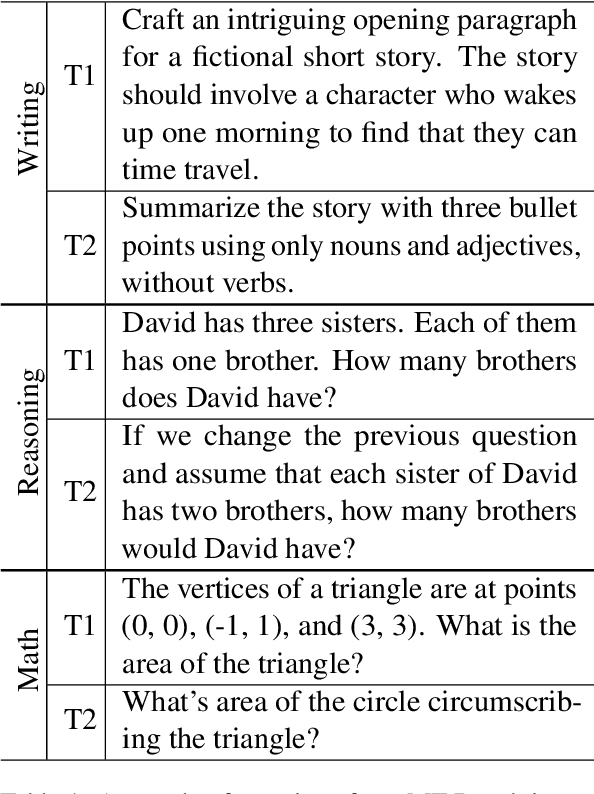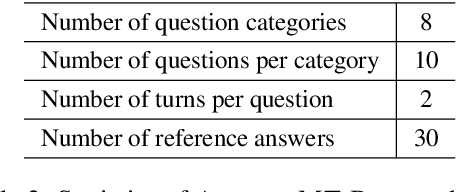Analyzing Multilingual Competency of LLMs in Multi-Turn Instruction Following: A Case Study of Arabic
Paper and Code
Oct 23, 2023



While significant progress has been made in benchmarking Large Language Models (LLMs) across various tasks, there is a lack of comprehensive evaluation of their abilities in responding to multi-turn instructions in less-commonly tested languages like Arabic. Our paper offers a detailed examination of the proficiency of open LLMs in such scenarios in Arabic. Utilizing a customized Arabic translation of the MT-Bench benchmark suite, we employ GPT-4 as a uniform evaluator for both English and Arabic queries to assess and compare the performance of the LLMs on various open-ended tasks. Our findings reveal variations in model responses on different task categories, e.g., logic vs. literacy, when instructed in English or Arabic. We find that fine-tuned base models using multilingual and multi-turn datasets could be competitive to models trained from scratch on multilingual data. Finally, we hypothesize that an ensemble of small, open LLMs could perform competitively to proprietary LLMs on the benchmark.
 Add to Chrome
Add to Chrome Add to Firefox
Add to Firefox Add to Edge
Add to Edge